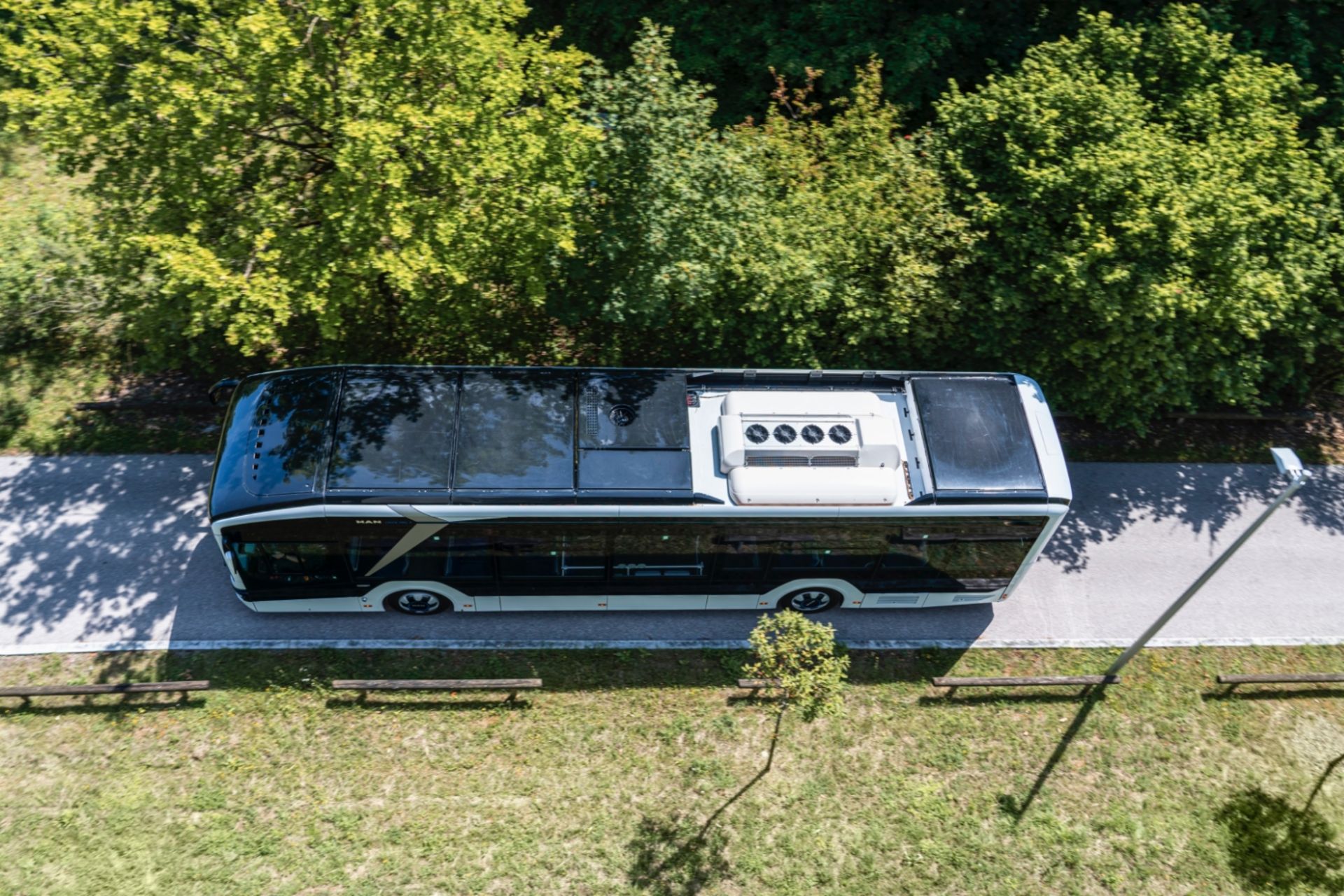Munich, April 22, 2022 – The TRATON GROUP as a Responsible Company — this is one of the main pillars of the Group’s strategy. Sustainability is key to the Company’s future and an important goal it is making gradually attainable thanks to a variety of initiatives.
TRATON joined the UN Global Compact in 2021, ensuring that the Company’s sustainability efforts are built on the United Nations Sustainable Development Goals. Only recently, the Group once again underlined its strong commitment to the Ten Principles of the UN Global Compact as the TRATON brand Volkswagen Caminhões e Ônibus joined this world’s largest and most important initiative for sustainable and responsible corporate governance in March 2022.
Following the materiality analysis in 2021, the TRATON GROUP identified Decarbonization & Circularity as one of three strategic areas. The idea behind this is transforming the Company’s business model and product design to reduce CO₂ emissions and resource consumption. The TRATON GROUP is especially committed to the climate protection agreement of the UN Climate Change Conference — the Paris Agreement. Decarbonization plays a key role there, too. As part of the TRATON strategy, the Company intends to significantly reduce its CO₂ emissions.
At the same time, the TRATON brands are pursuing their own CO₂ reduction programs. In 2020, Scania adopted science-based climate targets that were officially validated by the Science Based Targets Initiative (SBTi). Scania was the first major manufacturer of heavy commercial vehicles to do this. Reducing climate-damaging emissions is also a top priority for MAN Truck & Bus. In fact, its aim is a greenhouse gas-neutral balance sheet by 2050 at the latest. To begin with, 70 percent of greenhouse gas emissions are to be reduced at company locations worldwide by 2030 compared to 2019. Furthermore, the GHG fleet emissions per vehicle-kilometer of the trucks, buses, and vans sold by MAN are to fall by 28 percent by 2030 compared to the 2019 base year. MAN Truck & Bus joined the SBTi at the end of 2021 and has recently had its goals validated by the initiative, further underlining its commitment. The other brands within the TRATON GROUP are also developing climate strategies catering to their individual portfolios and markets.
However, the most prominent lever for TRATON to contribute to climate change mitigation is undoubtedly the electrification of its product portfolio. The priority now is to invest in fully battery electric vehicles. Overall, TRATON pledges to make responsible behavior a top priority in everything it does. “All our brands are strongly committed to sustainability and are making considerable efforts and progress in this field,” says Helga Würtele, Head of TRATON Sustainability.
Contact:
Pietro Zollino
Head of Group Communications,
Governmental Relations & Sustainability
T +49 172 8371431
pietro.zollino@traton.com
TRATON SE
Dachauer Str. 641 / 80995 Munich / Germany
www.traton.com
About TRATON GROUP
With its brands Scania, MAN, Volkswagen Caminhões e Ônibus, Navistar, and RIO, TRATON SE is one of the world's leading commercial vehicle manufacturers. Its range comprises light-duty commercial vehicles, trucks, and buses, at 29 production and assembly sites in 17 countries. The Group aims to reinvent transportation — with its products, its services, and as a partner to its customers. For TRATON, sustainable economic growth always includes treating people and nature with respect. The People, Planet, and Performance triad will shape the future of our Company.
